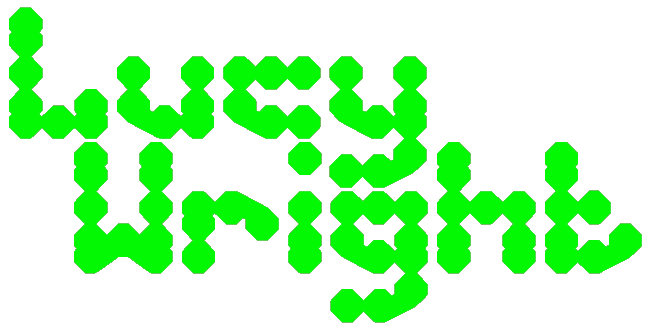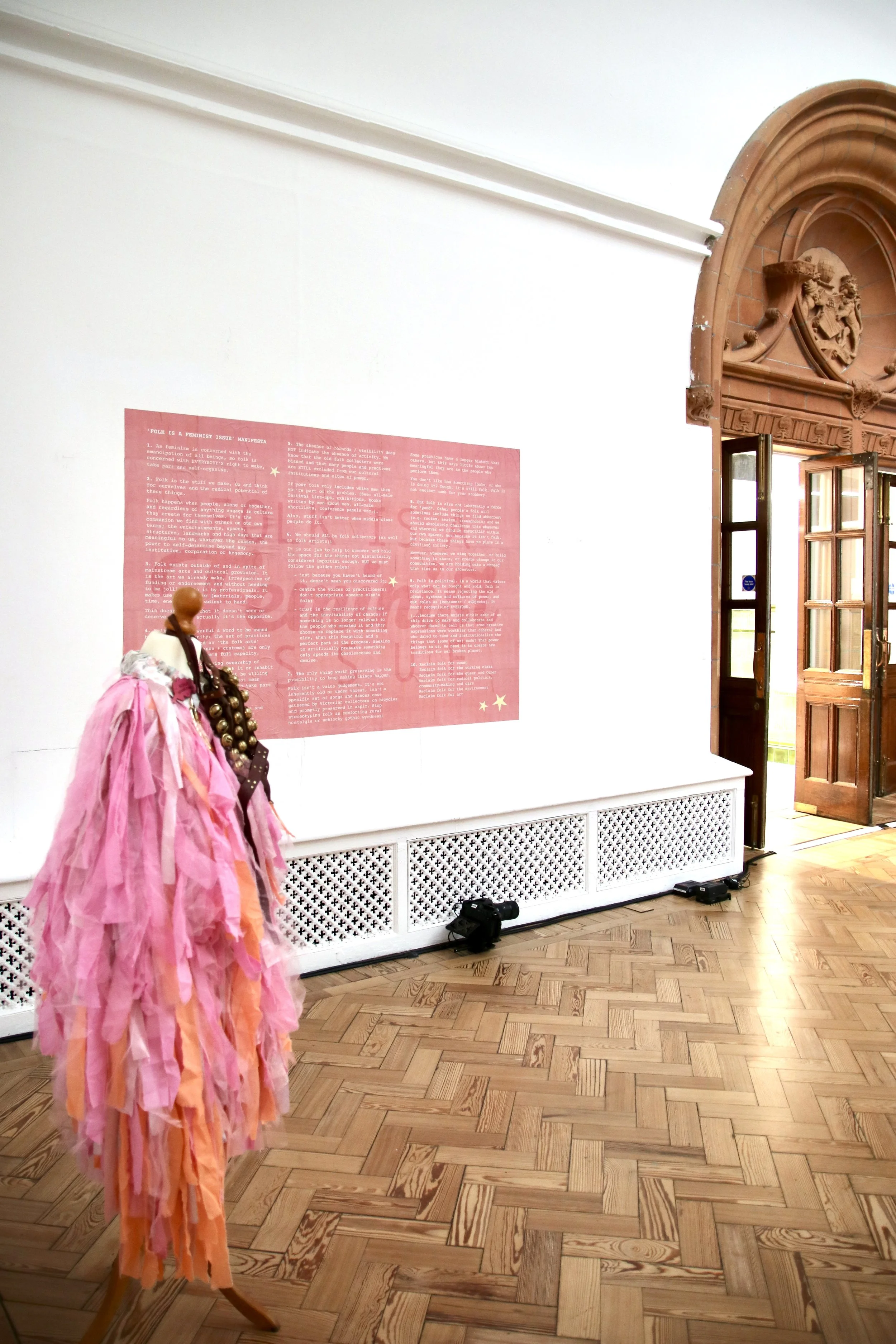Manifesta (2021)
‘In a world that values only what can be bought and sold, folk is resistance. It means rejecting the old ideas, systems and cultures of power, and our roles as [consumers / subjects].’
1.
As feminism is concerned with the emancipation of all beings, so folk is concerned with EVERYBODY’S right to make, take part and self-organise.
2.
Folk is the stuff we make, do and think for ourselves—and the radical potential of these things.
Folk happens when people, alone or together, and regardless of anything engage in culture they create for themselves. It’s the communion we find with others on our own terms; the entertainments, spaces, structures, landmarks and high days that are meaningful to us, whatever the reason, the power to self-determine beyond any institution, corporation or hegemony.
3.
Folk exists outside of and in spite of mainstream arts and cultural provision. It is the art we already make, irrespective of funding or endorsement and without needing to be jollied into it by professionals. It makes use of whatever [materials, people, time, energy] are readiest to hand.
This doesn’t mean that it doesn’t need or deserve funding: actually it’s the opposite.
4.
Folk is too powerful a word to be owned by a single community: the set of practices currently identified as ‘the folk arts’ (e.g. folk music, dance + customs) are only a fraction of the term’s full capacity.
Those of us used to having ownership of ‘folk’ because we grew up with it or inhabit some of its present spaces must be willing to deterritorialize. This does not mean ‘allowing’ marginalised groups to take part in traditions that have always been dominated by white men; it’s about recognising and celebrating the parallel—equal—traditions, practices and structures belonging to women, LGBTQ+ communities and black and brown folks.
5.
The absence of records / visibility does not indicate the absence of activity. We know that the old folk collectors were biased and that many people and practices are STILL excluded from our cultural institutions and sites of power.
If your folk only includes white men then you’re part of the problem. (See: all-male festival line-ups, exhibitions, books written by men about men, all-male shortlists, conference panels etc.).
Also, stuff isn’t better when middle class people do it.
6.
We should all be folk collectors, as well as folk artists!
It is our job to help to uncover and hold the space for the things not historically considered important enough. BUT we must follow the golden rules:
- just because you haven’t heard of it, doesn’t mean you discovered it;
- centre the voices of practitioners: don’t appropriate someone else’s folk;
- trust in the resilience of culture and the inevitability of change: if something is no longer relevant to the people who created it and they choose to replace it with something else, then this beautiful and a perfect part of the process. Seeking to artificially preserve something only speeds its obsolescence and demise.
7.
The only thing worth preserving is the imperative to keep making things happen.
Folk isn’t a value judgement. It’s not inherently old or under threat, isn’t a specific set of songs and dances once gathered by Victorian collectors on bicycles and promptly preserved in aspic. Stop stereotyping us as pedlars of comforting rural nostalgia or schlocky gothic wyrdness!
Some practices have a longer history than others, but this says little about how meaningful they are to the people who perform them.
You don’t like how something looks, or who is doing it? Tough, it’s still folk. Folk is not another name for your snobbery.
8.
But folk is also not inherently a force for *good*. Other people’s folk will sometimes include things we find abhorrent (e.g. racism, sexism, transphobia) and we should absolutely challenge this whenever and wherever we find it **ESPECIALLY within our own spaces** not because it isn’t folk, but because these things have no place in a civilised society.
However, whenever we sing together, or build something to share, or create change in our communities, we are holding onto a thread that ties us to our ancestors.
9.
Folk is political. In a world that values only what can be bought and sold, folk is resistance. It means rejecting the old ideas, systems and cultures of power, and our roles as [consumers / subjects]. It means recognising EVERYONE.
(…because there exists within each of us this drive to make and collaborate and whoever dared to tell us that some creative expressions were worthier than others? And who dared to tame and institutionalise the things that (some of us) made? That power belongs to us. We need it to create new traditions for our broken planet.
—Lucy Wright, 2021.
10.
Reclaim folk for women
Reclaim folk for the poor / benefit class
Reclaim folk for the queer and Other
Reclaim folk for radical politics, community-making and care
Reclaim folk for the environment
Reclaim folk for art



